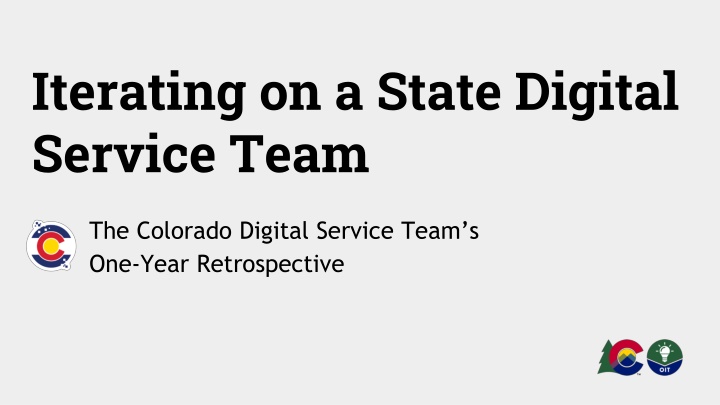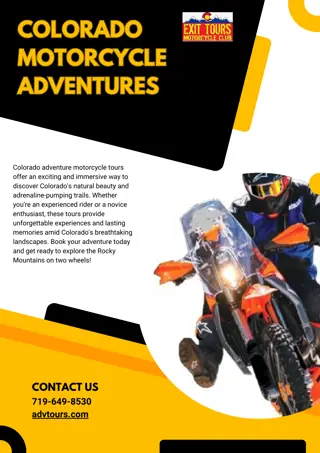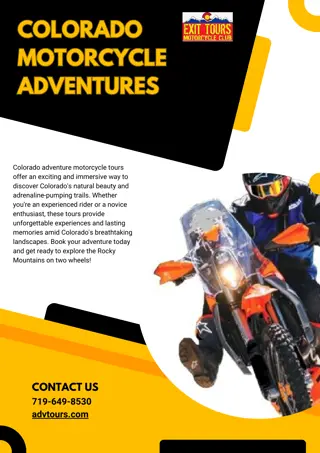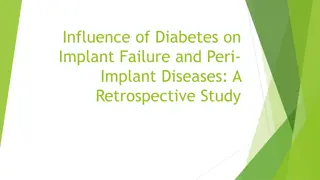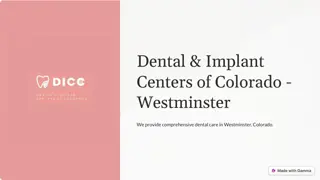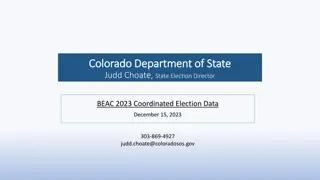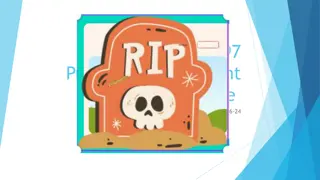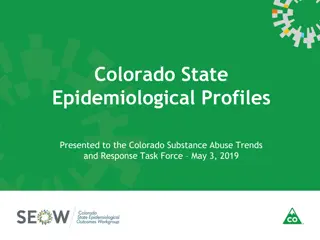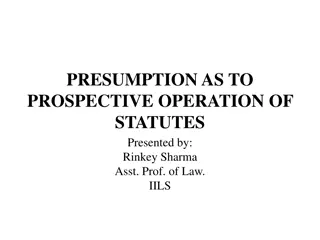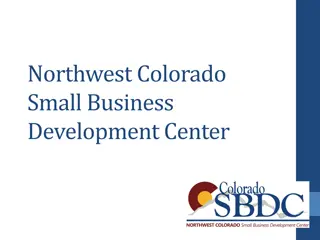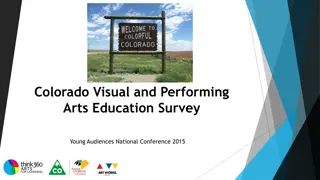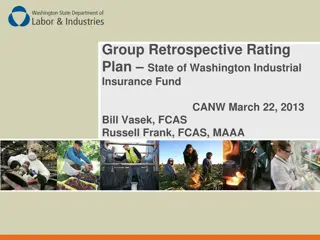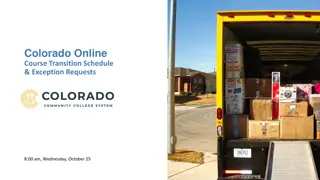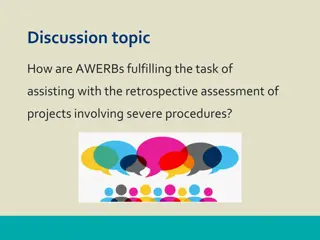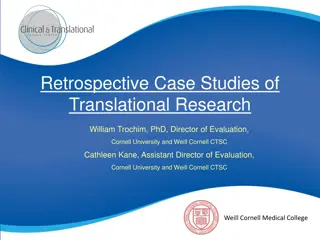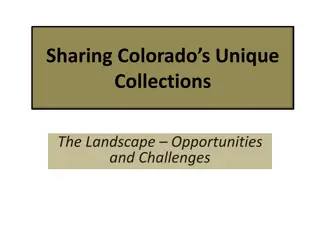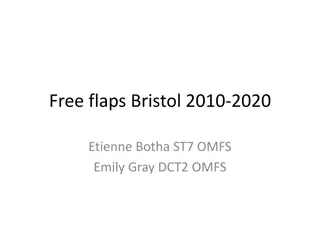Colorado Digital Service Team's One-Year Retrospective
"Exploring the Colorado Digital Service Team's journey through self-reflection, external feedback, and values alignment to enhance partnerships and deliver value. Learn how they engaged with agency partners, gathered insights, and strived for continuous improvement."
Download Presentation

Please find below an Image/Link to download the presentation.
The content on the website is provided AS IS for your information and personal use only. It may not be sold, licensed, or shared on other websites without obtaining consent from the author.If you encounter any issues during the download, it is possible that the publisher has removed the file from their server.
You are allowed to download the files provided on this website for personal or commercial use, subject to the condition that they are used lawfully. All files are the property of their respective owners.
The content on the website is provided AS IS for your information and personal use only. It may not be sold, licensed, or shared on other websites without obtaining consent from the author.
E N D
Presentation Transcript
Iterating on a State Digital Service Team The Colorado Digital Service Team s One-Year Retrospective
Hello and welcome. Stephanie Cain Karyn Lu Randy Hart Colorado Digital Service UX Researcher and Designer She / Her / Hers stephanie.cain@state.co.us Colorado Digital Service Product Manager She / Her / Hers karyn.lu@state.co.us 18F Federal IT Procurement Reform He / Him / His
Colorado Digital Service (CDS) Values Be curious Social justice Start with the problem, move to action Find the truth, tell the truth (credit: USDS) Be humble Strength in diversity (inspired by: Protect Democracy) Government was here before us and will be here after us Government is us, just us (credit: Megan Smith) Challenge the status quo
At our one-year anniversary, our team wanted to learn: How did our agency partners view the value that our team provided? What happened after we rolled off a project? What opportunities exist to improve the way we engage with our partners?
Our method (how we did it) Self-reflection Collected value statements from each Colorado Digital Service team member Guided by past team strategy and goal-setting conversations Pulled themes from past Colorado Digital Service retrospectives External feedback Interviewed more than 40 state and vendor partners
Teach by demonstrating CDS delivers value by rolling up our sleeves in order to do the work alongside experts at agencies and by coaching and mentoring people to implement the same practices in their own work. Meet people where they are We meet agency partners where they are at. We assess their values, their style, their needs, and their emotions, and connect with them in an authentic way that allows them to feel heard. Strong culture Diverse brains & kind, smart, collaborative people in your corner.
30 min external interview Questions Before the engagement began, what did you expect from working with the CDS team? Did that evolve over the course of the project? Walk us through what happened with the project after the engagement with CDS ended. What advice would you give someone who was about to engage with the CDS team? What advice would you give to our team for future engagements?
What we learned: How our partners saw us
Partners valued our expertise, drive and neutrality. Not being tied to the way things have always been done, that's really valuable. Political neutrality is super valuable. You model functions that live in the middle space (IT and business) that help clarify the conversation and set the stage for those practices to evolve.
We offer kinship, healthy culture, and a collaborative partnership. It was helpful to watch the way you work together.. It s a great model for how teams should collaborate and work together. You constantly asked what isn't working? What do we need to change?
Many people saw us as consultants. That came with mixed connotations and emotions. I hate to use the word consultant, but you come in with no dog in the fight and present what you think is the right thing to do based on past experience. I was like, is this a subversive way of assessing what we're doing well and badly?"
Sometimes, the language or processes we used felt unfamiliar and inaccessible. Not everyone felt comfortable asking us to clarify. Even a retro...I get the word but in public health world I'd call it a debrief. It doesn't prohibit you from participating but the fast pace of the work, it can feel intimidating and inaccessible if you don't feel comfortable asking.
Even after months of an engagement, some of our partners struggled to describe the Colorado Digital Service. Sometimes they saw us only as individuals, and not as a team. I don t know what the Colorado Digital Service is or how to engage them.
Deeper self- reflection
Where to focus and to prioritize Not every project is a good fit even if we re passionate about the subject. Ask the right questions during project intake and prioritize. Some things are outside of our control; not everyone will be on board with our work.
Change management and team culture We are change management experts disguised as technologists. Aaron Snow Team culture is CRITICAL to a successful technology project.
Sustainability Our partners are so busy that they often see us an extra pair of hands, rather than a coach. They don t always absorb new practices just by watching us work. Discovery sprints are only as valuable as their implementation. After we exit, our partners can face systematic barriers that prevent them from implementing processes that we advocate for during our engagements.
Attracting and supporting talent A person hired into an agency is less supported than a person who is a part of a digital service team. They are uniquely challenged in being the first hire in an organization that is unfamiliar with that particular skill set. The drive to work in a mission-driven organization is an important factor when hiring. Just because someone is a leader in the private sector, does not make them a good fit for this type of work.
Improving the way we work
Improving the way we work Better define CDS and our value from the beginning More inclusion to bring people along in the process Do a better job transitioning off projects Remember we are not long-term owners Break expectations, not rules Advance team model to better scope projects before getting one-pagers approved by CIO and Gov s COO.
Discussion topic: What lessons have you learned the hard way?
